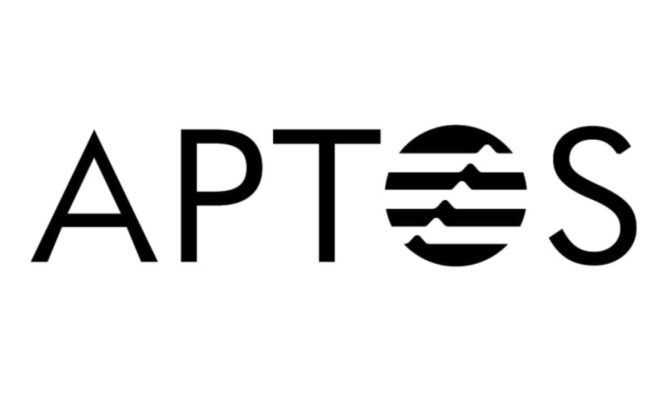Many things have changed once the COVID-19 pandemic made its way to the table, and these days, people are constantly looking for creative ways to make and invest money, as well as save for their retirement.
The rapid growth of the cryptocurrency industry prompted an interest in including crypto in retirement strategies. Ample knowledge of cryptocurrency, its trends, and how it can contribute to your plans ensures you’re doing everything possible to make an informed decision about including it in your retirement strategies.
Let’s better understand how you can include crypto in your retirement plan.
How to Include Cryptocurrency in Your Retirement Strategies
Saving for retirement is all about stability, so, understandably, people may side-eye using cryptocurrency for that. Crypto is not as secure as we would like (yet), and its volatility is documented for all to see. This rollercoaster of how helpful or harmful cryptocurrency is makes it less appealing compared to traditional methods of saving for retirement.
But even with its downsides, crypto can offer high returns, increased liquidity, and a high level of transparency that aids in choosing the best strategy for further growth.
Most of us are familiar with regular IRAs and 401ks as the most used options for retirement savings. But as entrepreneurship rises and more and more people pursue opportunities that don’t provide traditional retirement benefits, it’s perfectly acceptable to look for alternative options like self-directed IRAs to save for the future.
What Is a Cryptocurrency IRA?
A crypto (or Bitcoin) IRA can be an accessible option for retirement savings. A Bitcoin IRA helps with diversification, provides an opportunity for tax-free growth, and limits inflation. It requires a minimum investment of around $5,000 and annual fees that can reach an average amount of $250.
With a Bitcoin IRA, cryptocurrency is added to the account via fast and efficient transactions facilitated by custodians. Bitcoin IRAs are self-directed and considered alternative investments since cryptocurrency falls outside the realm of traditional assets.
A crypto IRA is a retirement savings method that uses cryptocurrencies and supports coins such as Bitcoin, Ethereum, Litecoin, Ripple, and others. Users will have access to experts who can advise them regarding cryptocurrency and guide and educate them throughout the entire lifecycle of their Bitcoin IRA. It may also be helpful to research more companies, as many platforms offer cryptocurrency IRAs now.
Comparison to Regular Retirement Accounts
While investing in regular IRAs doesn’t allow for as much diversification beyond traditional investments, the transactional fees and additional charges are much more reasonable than those that come with Bitcoin retirement accounts.
Traditional IRAs also have more tax benefits—contributions made to your account may be partially or fully deductible, depending on your financial circumstances.
Cryptocurrency, on the other hand, is not treated the same way as fiat when it comes to taxes. Crypto is instead taxed similarly to the way properties are.
Cryptocurrency transactions are taxed each time there is a trade or sale, just like stocks and bonds. It’s been this way since 2014, when the IRS (Internal Revenue Service) began considering cryptocurrencies as property once they’re added to retirement accounts.
There are a variety of IRAs besides the traditional ones, including ROTH, SEP (Simplified Employee Pension), and SIMPLE (Savings Incentive Match Plan for Employees) IRAs. Each is structured differently in order to suit different factors like income thresholds and employment status. In this sense, there’s more flexibility around economic and financial criteria.
How to Open an IRA for Bitcoin and Other Cryptocurrencies
Opening a crypto IRA is relatively simple—all you have to do is create a self-directed account through a secure online application that requires an e-signature.
However, you do need to use a cryptocurrency platform in order to go through the process of starting and adding to an account.
Investopedia has created a list of the best crypto IRA companies right here. When checking their top, users can find out more about:
- Bitcoin IRA – best company overall;
- Coin IRA – best investor experience;
- BitIRA – best for security;
- Equity Trust – best for self-directed investments;
- Regal Assets – best variety of supported cryptocurrencies.
A reputable and trustworthy crypto IRA platform will prioritize data privacy and be fully compliant with local tax laws and regulations.
Some providers, like BitIRA, will also offer insurance policies for your cryptocurrency investments and cold storage options. A common feature provided by highly rated platforms is a personal dashboard where you can monitor your investment transactions and activities.
Some platforms are more user-friendly than others, so it’s a good idea to research the various options and make your choice based on your needs and your familiarity with crypto-trading technologies.
Once your digital IRA is set up, you can add Bitcoin or other supported cryptocurrencies.
Other commonly used cryptocurrencies are Litecoin, Ripple, Ethereum, and Bitcoin Cash—but there are many more to choose from, depending on your preference and how widely you wish to diversify your investment portfolio.
Disadvantages of Bitcoin IRAs
Investing in a relatively new market that demonstrates unexpected price fluctuations may be risky, particularly if you are new to crypto investments.
Even experienced investors are not immune to cryptocurrency markets’ pitfalls and unpredictable nature. Protecting retirement funds is critical for long-term financial security, so you should always be cautious when investing in a potentially unstable asset that can lead to significant financial losses.
However, with high risks come great returns, which is part of what makes investing in a digital currency so intriguing.
Another disadvantage of Bitcoin IRAs is the fees for having and using an account. Fee structures vary depending on what platform you use, but most companies charge monthly fees as well as other charges for transfers, purchases, and other regular transactions.
Bitcoin trading through an IRA is not the same as trading through cryptocurrency exchanges.
The risks incurred by having a digital IRA set up by a third party can also put you at disadvantage. Platforms that offer custodial services are not responsible for any losses because they are not legally fiducially bound the way traditional brokers are.
In Conclusion
With the COVID-19 pandemic and other major events still affecting people worldwide and global economies facing much uncertainty, it’s understandable why many people are growing increasingly eager to jump on the cryptocurrency bandwagon.
However, there’s still significant skepticism about whether Bitcoin and other popular cryptocurrencies on the market will continue to increase in value, drop to new all-time lows, or remain stable in the years to come. For optimists, the concept of investment diversification in their retirement accounts can seem like a more innovative and potentially more profitable approach than the conventional route.
Either way, it’s essential to understand and consider all the risks involved with any long-term investment strategy and be very cautious about the economic stability of assets, be they tangible or digital. Furthermore, those who choose to create a crypto IRA should conduct thorough research before deciding on what dedicated platform to use.


